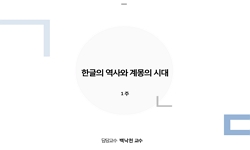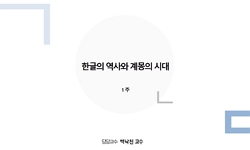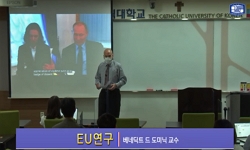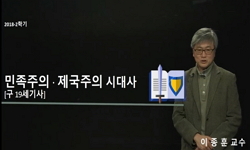Chinese people during the beginning of the 19th century had suffered a serious setback in the process of the collisions between the Western and Japan. In particular, the defeat from the Sino-Japanese War brought them to have a sense of crisis that Chi...
http://chineseinput.net/에서 pinyin(병음)방식으로 중국어를 변환할 수 있습니다.
변환된 중국어를 복사하여 사용하시면 됩니다.
- 中文 을 입력하시려면 zhongwen을 입력하시고 space를누르시면됩니다.
- 北京 을 입력하시려면 beijing을 입력하시고 space를 누르시면 됩니다.
https://www.riss.kr/link?id=A101784342
- 저자
- 발행기관
- 학술지명
- 권호사항
-
발행연도
2016
-
작성언어
Korean
- 주제어
-
등재정보
KCI등재
-
자료형태
학술저널
-
수록면
257-285(29쪽)
- 제공처
- 소장기관
-
0
상세조회 -
0
다운로드
부가정보
다국어 초록 (Multilingual Abstract)
Chinese people during the beginning of the 19th century had suffered a serious setback in the process of the collisions between the Western and Japan. In particular, the defeat from the Sino-Japanese War brought them to have a sense of crisis that China may perish with a great disgrace to the nation. Around this time, Liang Qi-Chao(1873-1927) who became the influential leader of the Chinese leadership had attempted to fundamentally reform the nation in order to get over the crisis. The ‘Shangwu Jingshen(尙武精神)’, Martialism had been especially emphasized as the national characteristics in the process of the reform of the national traits, which was considered as one of the most important tasks.
Liang Qi-Chao with the perspectives of the Enlightenment and nationalism had reflections on the current status of China and the Chinese spirit, namely, the national character and had detailed discussions about insufficient national traits and supportive national traits. In this process, he examined national characteristics of the Western and Japanese Empires that were invading China, including their evolutionary advanced skills and techniques among which the most important trait he particularly emphasized in his consideration was The Shangwu Jingshen, Martialism in addition to patriotism and strong willpower. During the time of his political asylum in Japan, he had great stimuli and attention to the effects of the martial spirit on the development of the Japanese special national spirit which made it possible for Japan to gain control over China and Russia and achieve Chosun Annexation. As a result, many of his literary works illustrated the great emphasis on The Shangwu Jingshen, Martialism and he examined and conducted case studies on how this spirit had a positive impact on the development of many other nations in the world; in contrast, he had deep reflections about the effects of the deficiency of the spirit on Chinese people and thus investigated the cause and effect relationship in relation to Chinese historical humiliation and embarrassment. Moreover, on the basis of these reflections and examinations, he had concrete and practical suggestions for the ways of encouraging The Shangwu Jingshen, Martialism from now on. Furthermore, as Liang Qi-Chao made a great use of education and media, considering his stance and position as a poet and a novelist, an educator, and a journalist, he greatly emphasized the martial spirit as part of developing new literary contents through the literary revolutionary movement including poems and novels within the framework of the theory of the Enlightenment and made great attempts to encourage the spirit.
목차 (Table of Contents)
- 1. 서론
- 2. 상무정신의 제기 과정 및 강조 논거
- 3. 중국의 상무정신 결여에 대한 성찰
- 4. 상무정신 고양에 필요한 덕목의 제시
- 5. 결론
- 1. 서론
- 2. 상무정신의 제기 과정 및 강조 논거
- 3. 중국의 상무정신 결여에 대한 성찰
- 4. 상무정신 고양에 필요한 덕목의 제시
- 5. 결론
- 〈參考文獻〉
- 〈ABSTRACT〉
동일학술지(권/호) 다른 논문
-
한국학생의 중국어 어휘 의미망 연결 방식 탐색 및 교육적 제언
- 중국어문학연구회
- 崔賢美(Choi, Hyun-mi)
- 2016
- KCI등재
-
- 중국어문학연구회
- 朴贊旭(Park, Chan-wook)
- 2016
- KCI등재
-
- 중국어문학연구회
- 朴美愛(Park, Mi-ae)
- 2016
- KCI등재
-
- 중국어문학연구회
- 宋之賢(Song, Ji-hyun)
- 2016
- KCI등재






 DBpia
DBpia







